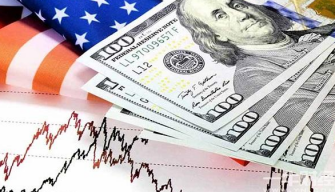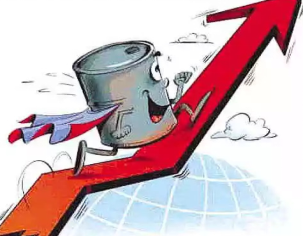Higher interest rates by central banks will add to other headwinds such as supply chain problems, soaring inflation and rising interest rates
Stocks will see more sell-off this summer as central banks around the world raise interest rates in an attempt to curb rising inflation. Central banks will tighten monetary policy further and there will be more bad news on economic activity. It is time to re-examine the fundamentals of global economic growth. With global inflation rising, economic growth slowing, and interest rates rapidly rising, it's hard for markets to be completely optimistic. Last week, the Fed decided not to raise interest rates further sharply, and at this stage, all central banks are rhetoric. But the reality is that massive tightening will eventually lead to a contraction in the economy. The Ukraine war is expected to last much longer than many market participants expected, adding to other headwinds such as supply chain issues, soaring inflation and rising interest rates.
Saudi Arabia lowers selling prices to reflect worries about global oil demand
International oil prices have fallen, driven by the global economic recession that may curb oil demand, Saudi Arabia has lowered the price of crude oil to customers in Asia and Europe, and the implementation of the embargo on Russian oil imports by Western countries may not go smoothly. The broader risk-off sentiment sparked by recession fears and China's containment measures to contain the virus were the main factors weighing on oil prices. Saudi Arabia, the world's largest oil exporter, cut its June crude oil prices for Asia and Europe on Sunday (May 8). Saudi Arabia's lower selling prices also reflected concerns about global oil demand.
OPEC and its partners in OPEC+, led by Russia, decided last week not to raise output targets next month
OPEC+ gave the EU a slap in the face because the decision meant that Europe would have no extra oil to replace sanctioned Russian oil. Earlier last week, the European Commission proposed an oil embargo on Russian crude and refined products as part of the sixth round of sanctions the EU is discussing. The EU imports about 3.5 million barrels a day of crude oil and refined products from Russia, which is about half of Russia's total exports of oil and petroleum products and about a quarter of the EU's total oil imports. The six-month period is designed to help EU member states find alternative suppliers. However, these countries are few and they have no plans to boost production to help the EU.
Investors seek to hold U.S. dollars amid growing concerns over rising interest rates
As concerns over rising interest rates intensified, investors sought to hold the U.S. dollar, with the U.S. dollar index hitting its highest level since mid-December 2002 at 104.107. The 10-year U.S. Treasury yield on Monday rose to its highest level since November 2018, dragging down the price of non-yielding gold. Aggressive interest rate hikes by the Federal Reserve, accelerated quantitative tightening process, a stronger dollar and a possible easing of the situation in Ukraine will all face resistance to the upside of gold prices. The Fed has missed a good opportunity to fight underlying inflation, but hawkish Fed officials on Friday (May 6) pushed back against that view, arguing that financial conditions were already tightening before the Fed began raising interest rates in March.
Markets worry about a U.S. recession
Annual U.S. inflation hit a 40-year high, prompting the Federal Reserve to raise its benchmark interest rate by 0.5 percentage point, the largest increase in 20 years. Meanwhile, the U.S. economy unexpectedly shrank in the first quarter of 2022, with GDP falling at a rate of 1.4%. According to the latest CNBC Small Business Survey, 80% of small business owners expect a recession this year. While some experts say a recession is looming, others expect a stronger second quarter of 2022, suggesting personal consumption will remain stable despite soaring prices.
Euro zone investor confidence slips to lowest level since June 2020
Investor confidence in the euro zone fell further to its lowest level since June 2020 and is now down for the third straight month. The ongoing impact of the Russian-Ukrainian conflict remains important, and the current situation index also slipped to -10.5 in May from -5.5 in April, the lowest level since March 2021. The May expectations index hit its lowest level since December 2008. A "perfect storm" is brewing in the global economy, and for Europe a recession is becoming evident.
Bank of France Governor Villeroy de Gallo supports at least three rate hikes in 2022
Villeroy de Gallo, a member of the European Central Bank's Governing Council and governor of the Bank of France, said the ECB should raise the deposit rate to positive this year. His comments suggest he supports at least three rate hikes in 2022. Still, EUR/USD responded with only modest gains. After the EUR/USD rebounded and stopped at 1.0650 in the previous trading day, it failed to break through further and fell sharply from this level, returning to the falling channel.
 2022-05-11
2022-05-11
 1171
1171






 简体中文
简体中文
 ภาษาไทย
ภาษาไทย
 繁體中文
繁體中文
 Indonesia
Indonesia











